As President of the Malta Developer’s Association, what is your vision for Malta?
Our vision has always been that of quality, seriousness and professionalism in our work. Is this reflected in people’s perceptions? Well, I think we still have a lot to do, but that is where we need to go to. Today, property costs money and in a small country such as ours, where the amount of land available for development is decreasing and awareness of the environment is – as it should be – increasing, one needs to concentrate on quality. We want to move towards having houses of quality like the traditional pre-war houses about which everybody gets excited these days.
We also want to cut out abuse. A lot of people do not realise how much they bothers others and how selfish they are. For instance, you sometimes see people who, by not using a vacuum cleaner or water, do not care that other people’s property is filled with dust for an entire day. Then there are others who don’t even bother to cover their trucks properly when they are transporting waste material. These are the things that worry us.
Today, the MDA is considered as being almost an authority. It is not an authority, but when we point out various issues, I think people take note of what we are saying. We certainly want to preserve the quality of life of the ordinary citizen, and that depends on how work and planning is carried out.

In terms of these abuses which you mention, what does the MDA suggest or do to help curb them?
Apart from trying to create awareness on abuse, we try to be practical. Unfortunately, there are a number of consultants who are not practical and the policies they issue are sometimes not doable in real terms. One needs to combine consultants, policymakers and awareness-raising in a practical manner to achieve the best results.
Today we are building a good relationship with a number of authorities such as the Planning Authority and the Building Regulations Office, along with departments such as ARMS, Transport Malta and also local councils so that we can discuss things and make sure that they are done well.

We know that the MDA was not in favour of how the Corinthia deal had panned out – and now it has been taken back to the drawing board by the government. What is your reaction to such news?
Speaking generally – and aside from Corinthia or any other specific project – we think that when the government is in negotiations over public land, the rule should always be that the people come out on top. The government cannot be allowed to pander to companies – both local and foreign – in such a manner that the people feel as if they are being stung. Past projects have set precedents that have angered people, and we need to be careful of that. As an association, we will insist that the government of the day ensures that such things are carried out in the interests of the people.
Given how the industry has evolved today, there can be no type of distortion in the market; we have always told the government that there has to be a fair and level playing field. There are a lot of people who are taking risks to invest and everybody knows that land is scarce. In Malta, land is like an oil well due to its scarcity – and it is governed by demand. This is why a fair and level playing field is imperative.
I think that when I have made certain statements they have been heard and I have faith that the government is listening to our concerns. I cannot comment further at this stage on this specific deal, as I believe that the government is addressing the issues we have raised. However, when the deal comes back for discussion, I will feel obliged to comment again in a fair manner as I have always done.
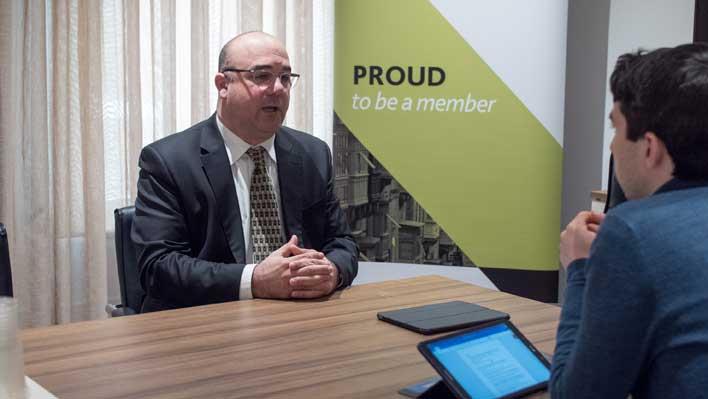
In an ideal world, what would the MDA like to see this deal consist of?
Again, without referring to specific projects, we must look to the past and see what happened. A lot of public land was given out with the obligation that projects in the national interest would be built. This did not happen and today, instead of having land in front of the sea used for a village which would employ a lot of people, we are seeing that project – and hence, people’s land – being used for speculation. I do not feel that these things benefit the country.
We cannot forget that we are making an effort to improve today’s standard of living and to maintain all the positives we have: stipends, a good welfare state, social benefits, free healthcare and social housing. However, to sustain all these things we cannot throw away what is valuable. We must be careful that projects that are carried out through the wealth of the people are done in the national interest.
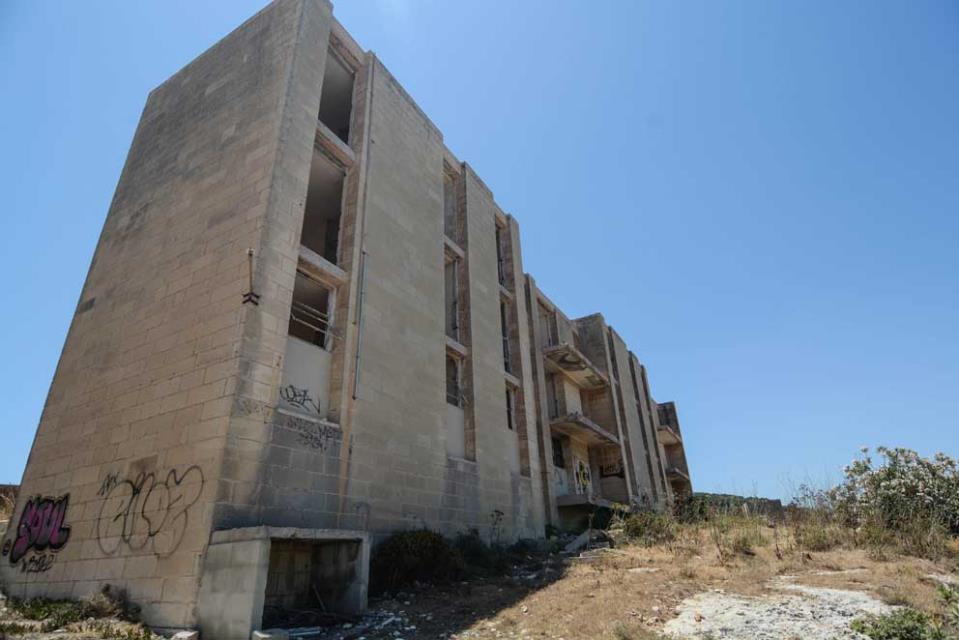
Another project that I would like to bring up is White Rocks. As a newspaper, we have closely followed this story for a number of weeks and recently reported the impasse that has been reached over the value of the site. What is your opinion on how this site is being handled?
The same thing applies to every project. Ideally, before moving on a site such as the one you have mentioned, the government prepares a development brief to see exactly what it wants from the project. When the development brief is approved by the Planning Authority, the project is then released to tender and is marketed properly. The government has to engage its architects in order to obtain the minimum fair value for the land, and then people must bid from that value upwards.
One of my recommendations to the government is to look at the long-term and do what the Church used to do in the past: maintaining the diret dominium. This means that the government would give the site for a reasonable number of years and then it would go back to the people so that, in the long run, it is the people who always remain wealthy. This is the policy that the MDA wants to see when it comes to public land.
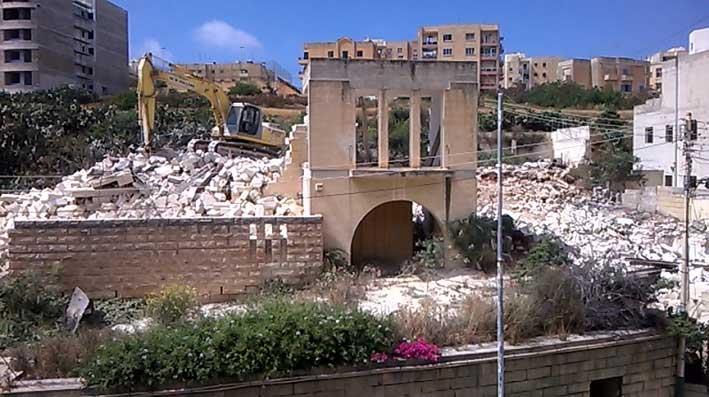
A central issue that has come to the fore recently but has been building up for a long time, is that of construction waste. Recently there have been reports that the price for dumping such waste has increased; how do such increases affect the market?
The more stress there is in terms of prices, the harder it is to stay competitive. There is a limit to how much you can raise prices, especially when it comes to affordable housing, and I think we have already passed this. The price of land has shot up more quickly than we thought, and with the industry at full throttle this means that those providing services are also charging more, including the mano d’opera. Finding people to work in construction is already a problem and when you do, the price is much more than a few years ago. Other indirect expenses – such as studies and consultants – have also increased. If we take the Superintendence of Cultural Heritage as an example, it is now normal that for every area on the island there is a need for a level of monitoring – and there are not many people who do this type of work, so it results in delays and price increases that are reflected in the final cost. There are more guarantees, such as re-doing the pavement and the roads and the certificates that one needs. Do not get me wrong – I’m not saying that we should do away with these requirements; they are all good, but they are all additional costs on the project.
The issue of construction waste is, however, a very big problem. The MDA is making an effort to keep the cost as low as possible, but a solution in the long term has not been found. The government needs to take a decision and go towards either recycling or opening areas in the sea where it is environmentally acceptable and where we can dispose of waste. Decisions, either way, need to be taken.
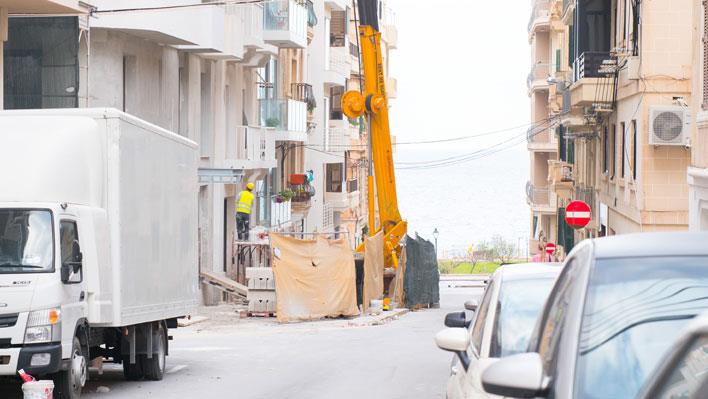
What would be the ideal solution for the MDA?
Personally, I think that recycling is the way to start resolving the problem. A lot of construction material can be re-used but to start this we need depots for storing the material and incentives for people doing this type of work. One could, for example, ensure that a certain percentage of a building project is made up of recycled material in order to start slowly implementing that recycling mentality.
Our material is very good; the rock that was cut from under Mater Dei and then thrown away for instance – it’s almost sacrilege. We need better planning; we lack planning in this country and sometimes the blame is put on developers when, in reality, we are only following the rules that are in place.
It was hoped that the death of Akram Akmshay last November would bring about changes and improvements in the safety of construction sites, but since then we’ve still seen a number of incidents involving construction workers. Firstly, who is responsible for ensuring the safety of these sites and, by extension, these workers?
There is a procedure for the safety of the workers: the developer is responsible for ensuring that the site is safe for anyone enters it; the contractor who employs the workers has an obligation to train workers and provide them with all the health and safety equipment – helmet, harness, safety shoes – required and to provide a supervisor on site, and then the worker himself has to follow the rules. Unfortunately, there are cases where workers refuse to abide by the rules and subsequently end up walking off the site as a result.
As the MDA, we have started the MDA Academy, and we are holding discussions with a private entity for a joint venture in order to expand education and awareness on the basics, including health and safety.
A change of culture must come with education however; we are forgetting that there are a large number of foreigners coming to Malta who have a different mentality when it comes to what constitutes health and safety. The risks they take are what we used to take some 40 years ago. We have made big advances in health and safety, but are struggling to mitigate the problem of working with people who are not as updated as us in this respect.
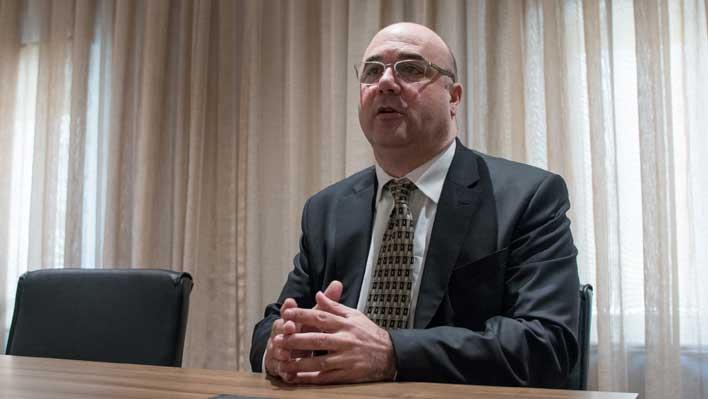
Should, for instance, a system be implemented where construction workers have to register and require some sort of certificate to prove that they are up–to-date with such practices?
As the MDA, we have proposed to the government that developers and contractors are all registered and that contractors are classified according to whether or not they follow specific regulations. Their classification would go down according to what they do not follow, serving as an incentive for them to make sure of proper practices.
We are also talking to the General Workers’ Union to make a concerted effort for workers to join a union as well. This has to be a joint effort; we cannot put the blame on contractors or on workers – but things have to improve. Things are moving forward but I think we’re moving a bit too slowly.
What is the MDA’s stance on the Gozo tunnel?
We’re all in favour that there is a type of connection between Malta and Gozo; it would, for instance, make things much easier for Gozitan students who have to rent property to live in Malta, and would improve Gozo’s economy as well.
However, we must take care that we do not create Malta’s density in Gozo as well. Just because we are going to build a link does not mean that we have to build Gozo up as well. Gozo is special simply because it is Gozo. I like the distinction that there is between Malta and Gozo. Even in Malta we must have this distinction; I do not want to see everywhere become like Bugibba or Qawra. I want to see traditional villages retain their character. If we do not preserve this mix, we are going to ruin everything. We need to persevere and to lobby so that this difference is maintained.
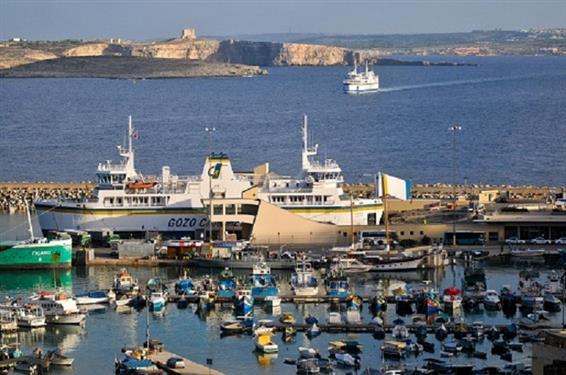
In fact one of the biggest fears – if not the biggest – of the general public with the Gozo Tunnel is that the levels of development that Malta is seeing will spread to Gozo as well. Do you think these fears are justified?
They are justified because the people have been stung – and I cannot blame them. However, if people who mean well – such as the MDA – are in the lead and if we start gaining credibility and respect as an association that does mean well, we can lobby so that the mistakes of the past can stop happening and then that fear will slowly start decreasing.
Property prices today are high – this is a fact. What will happen when this bubble bursts? What will the effect on the building industry and, by extension, the country be?
I do not think there’s a bubble; a study we commissioned KPMG to carry out for us in fact reflects this. However, it does not mean that a bubble cannot be created. It does not mean that just because there is no bubble now, there cannot be one in the future.
Any negative decision such as in the past, when practically overnight there was a height relaxation policy across the board, resulting in flats being built everywhere, which makes people think that property is not an investment can cause a lot of damage. When that feel-good factor ends, everything automatically stagnates: people with commitments make mistakes, liquidity lessens and there could be a ripple effect on the whole chain.
There will be a period when work peaks and things stabilise before rising slowly again, and this is healthy; but if decisions are hurried and taken in the short term, then there could be a lot of damage.
Decisions such as what?
They can be various; some are proposing a tax on vacant properties, others are pushing for more land – even in Outside Development Zones – to be developed, or for building height restrictions to be increased. These would all be suicidal measures.
The infrastructure is another point that can have an effect, although recently there has been substantial improvement in the short to medium-term. However, we need to consider things more deeply so they are done in the long term pari-passu with the developments that are being taking place. Safety is also another major issue: we must do everything to retain the sense of security and hospitality that we have in Malta.